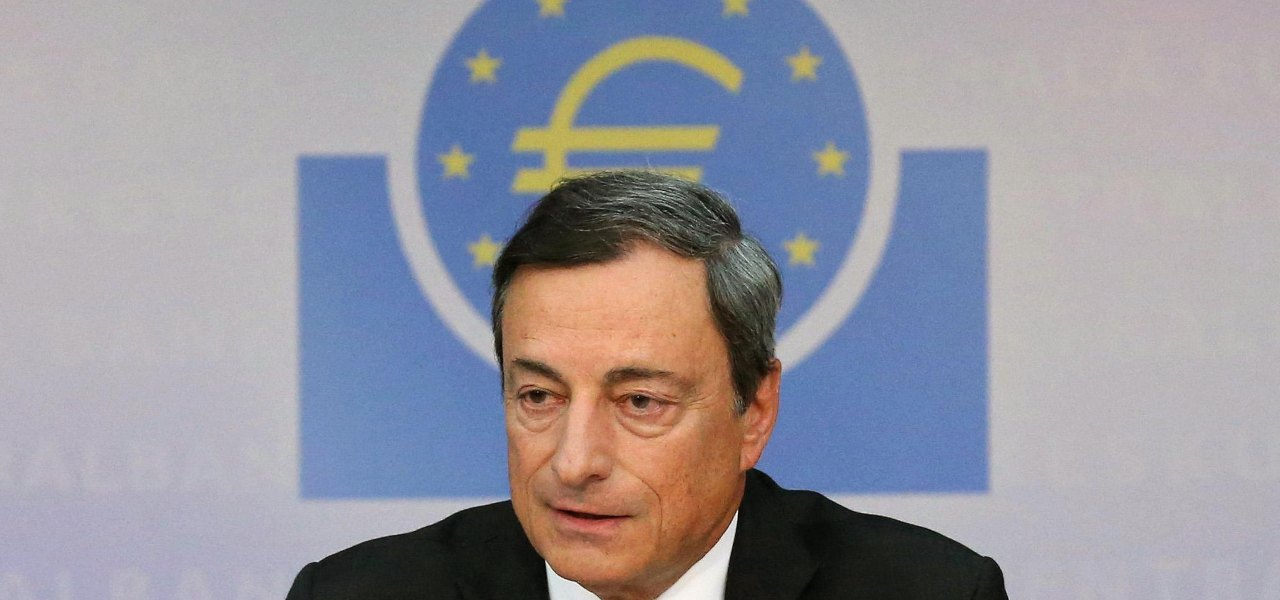GEO-FINANCE / Here’s how Draghi, Merkel and Biden can make the euro and the dollar work together

The “informal” and telematical meeting of the European Council of Heads of State and Government of 27 countries in the European Union deserves to be explored not only because it is the first meeting in which Council President Mario Draghi participated and because he faced a serious problem such as the EU vaccination plan, but above all, if it was read jointly With The G7 meeting took place a few days agoIt may mark the beginning of a “euro-dollar strategy” to write new rules for the functioning of the global economy when there are concrete signs that we are ultimately leaving the epidemic behind.
Let us first address the internal aspects of the European Union. The first and extended (3 pages) part of the “Final Declaration” for the 27 participants relates to the vaccination plan and gives priority – as Draghi has firmly requested – to citizens of the European Union; Only after achieving a high vaccination rate in the European Union will it be possible to plan to allocate part of the vaccines available to the associated countries in Africa and Asia and the Pacific (as requested by France). The declaration affirms the need for the European Union to show unity and firmness in requiring pharmaceutical companies to fulfill their contractual obligations.
We know that the idea of focusing the procurement and related contracts department in the European Commission sounded good in order to get better terms from the pharmaceutical companies. This was not so because of the agency’s lack of experience in procurement processes of this scale and nature, and above all in concluding contracts with heavy penalties for non-compliance. The “Final Declaration” also proposes “improving coordination between the European Union, in line with the terms of reference of the Union stipulated in the treaties, in order to ensure greater prevention, preparedness and response in case of future health emergencies”. It is certainly not a matter of moving toward a “common health policy”, which, among other things, is inconsistent with the “principle of dependency” according to which Decisions are made at the level of the citizens as close as possible, but at the level of “closer union in health emergencies”.
The “The closing announcement “has immediate repercussions for Italy as well: urgently improving implementation of the vaccination plan, which, after a good start, is now riddled with shortcomings and scandals (at least in the media). For Italy and the European Union, the vaccination plan also has geopolitical implications.” Given the progress made in vaccination programs (for example, the Argentina program that Russian vaccines are used And also the Chinese, which does not appear to be lacking in display). In Emilia-Romagna, there is a real revolt against the long-dominant political forces in the region due to the success of the vaccination program in the small republic of San Marino (where the vaccine was developed and produced in Russia), while in Bologna, there are centenarians still on the waiting list.
This brings us to the second part of the “Final Statement” and its possible implications. It is dedicated to the common defense and security policy and strongly affirms the Atlantic principles in the context of an “ambitious strategic compass aimed at guiding the further implementation of the level of ambition of the European Union in the field of security and defense”.
Therefore, we are entering a broader field: the field of rewriting the inevitable rules of international economics, which journalists call the “new Bretton Woods”. Angelo Federico Arceli and Giovanni Tria produced good work: Towards a renewed Bretton Woods agreement, Published by Transatlantic Leaderhisp Network and distributed by Brookings Institution Press. Intelligent Scale examines the performance of the monetary system in the past 75 years and the shrinkage of the “weight” of the United States in the global economy from 1944 to today: from 50% to 15% of global GDP. The study emphasizes the need to review the system set in Bretton Woods in light of changes in the international economy. The analysis is accurate, but there is a lack of specific proposals, if not the proposal of a new international conference, similar to the Vienna Conference after the Napoleonic Wars, to redesign the international monetary and economic system, provided that the American administration wants and knows how to abandon the “exorbitant economic privilege” it enjoys. Currently. There is no shortage of other proposals including some fanciful ones like the one offered by the magazine Micro Mega Who calls himself the head of the “Enlightened Left”.
It is difficult to predict, before emerging from the epidemic, that a “global” conference will be held to write new rules of the game, radically change existing institutions, or create new ones. However, it is possible to think about adjustments that could be made or at least launched within the G20, this year chaired by Italy and which will hold the Conference of Heads of State and Government from April 30-31 in Rome. Especially as Prime Minister Mario Draghi enjoys the international standing to lead the process; Next year India will chair the G20.
However, to achieve results, Italy will not have to act alone. The Bretton Woods conference was prepared by what young Richard Gardner at the time (who left his professor at Columbia University for four years to become the US ambassador to Rome) called “sterling dollar diplomacy” in a book published in 1957. Gardner was a Rhodes scholar at Oxford and was He has access to private correspondence between Keynes and Harrod. One can expect “diplomacy” between the United States and the European Union, that is, “the euro and the dollar.” Within the European Union, close cooperation between Italy and Germany also appears necessary because the heads of government of the two countries enjoy excellent relations with the Biden administration.
© Reproduction reserved

Communicator. Reader. Hipster-friendly introvert. General zombie specialist. Tv trailblazer






